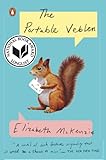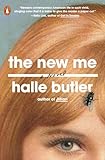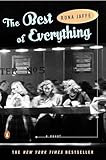Sometime around February, both somewhat crassly and in complete seriousness, I took to describing the still-newish 2019 as The Year of the Great Unclenching. The frenetic anxiety that had possessed me from working in a news cycle for the past four years that I can adequately only describe as a brain clenching its buttocks had finally begun to dissipate, leaving my mental faculties free and wanting to consume whole books again. (Apologies to all friends and strangers who had to endure me recount this self-mythologization at parties with an overenthusiastic use of the phrase “relaxed mental sphincters.”).
Since I lived in Harlem but went to lift weights three times a week at a gym in a Brooklyn neighborhood, for reasons I will explain another time—an hour-long commute each way transformed into the most peaceful uninterrupted reading time of the kind people (including me) moan about not having. 




 At 9 p.m. on a weeknight aboard a nearly-empty 2 Train, nobody jostles you, nobody peeks over your shoulder, you don’t have to choose between balancing the book in one hand and clutching the pole with another, leaving me free to smirk to myself midway through Barbara Trapido’s Brother of the More Famous Jack—the only other book that has come close to my everlasting love for Hanif Kureishi‘s The Buddha of Suburbia, in the genre misguidedly given the insufferably twee name “coming-of-age” novel.
At 9 p.m. on a weeknight aboard a nearly-empty 2 Train, nobody jostles you, nobody peeks over your shoulder, you don’t have to choose between balancing the book in one hand and clutching the pole with another, leaving me free to smirk to myself midway through Barbara Trapido’s Brother of the More Famous Jack—the only other book that has come close to my everlasting love for Hanif Kureishi‘s The Buddha of Suburbia, in the genre misguidedly given the insufferably twee name “coming-of-age” novel.
I have neither memory nor recollection of who told me about this writer or how I discovered her, but as the barest hint of my trapezius muscles began to emerge over the course of more Harlem to Crown Heights commutes, I inhaled Trapido’s entire body of work. Sex & Stravinksy, Noah’s Ark, The Travelling Hornplayer, Frankie & Stankie, Juggling and Temples of Delight—captivated by the way she manages to write the most charming books that take such perverse delight in the casual everyday cruelties that we, the members of the profoundly boring middle class, inflict on those (wives, husbands, offspring, mothers, fathers) when our indoctrinated veneer of fondness towards them wears thin, lobbing small grenades of destruction that do lasting damage, even as we cook dinner, fret over bills, and drink antacids to aid digestion.
All I read this year were books by women who write in barbs so sharp their sentences seem capable of leaving nicks in the corners of your thumbnail. You carry their words with the same awareness that you would the hanging flap of skin leftover from a paper cut—aware always, but still unable to stop obsessively picking at it. I laughed when Muriel Spark rendered the do-nothing Writer Man character in Loitering with Intent with an evisceration so succinct it made me avert my eyes in second-hand embarrassment. I took in Barbara Pym’s Excellent Women, which is un-showy and more restrained, but no less ruthless in its intelligence. I reread The Portable Veblen, which I’d first read back in 2016 when it came out and had momentarily forgotten what a strange, inventive and just plain weird book this was. I found far too many parallels of my own with Lolly of Sylvia Townsend Warner’s Lolly Willowes and Edith of Anita Brookner’s Hotel du Lac. I choked with a certain crazed laughter while reading Halle Butler’s The New Me, in horrified familiarity at the scenes where the character endures the meaningless tedium of working full-time temp jobs. I read and reread Rona Jaffe’s The Best of Everything so many times over the summer that the brand new copy split apart at the spine. I put it back together with Gorilla Tape and read it again.
I hope all these women will forgive me for comparing their writing to a hangnail. I love hangnails; they are my constant companion and keep me company when I am anxious, which is frequently.
Their writing did the same in a way.
More from A Year in Reading 2019
Do you love Year in Reading and the amazing books and arts content that The Millions produces year round? We are asking readers for support to ensure that The Millions can stay vibrant for years to come. Please click here to learn about several simple ways you can support The Millions now.
Don’t miss: A Year in Reading 2018, 2017, 2016, 2015, 2014, 2013, 2012, 2011, 2010, 2009, 2008, 2007, 2006, 2005
The post A Year in Reading: Iva Dixit appeared first on The Millions.
Source : A Year in Reading: Iva Dixit








